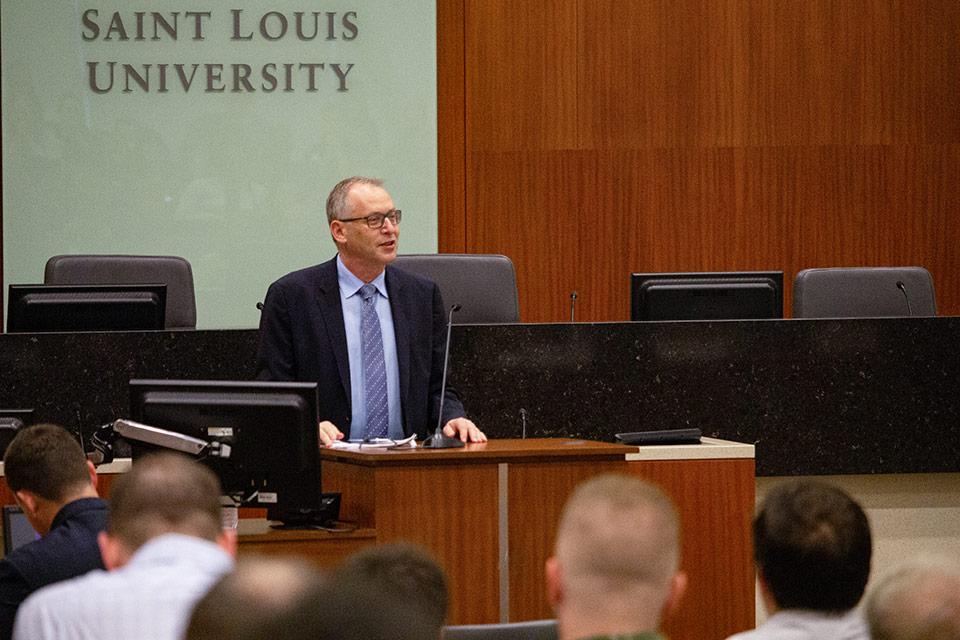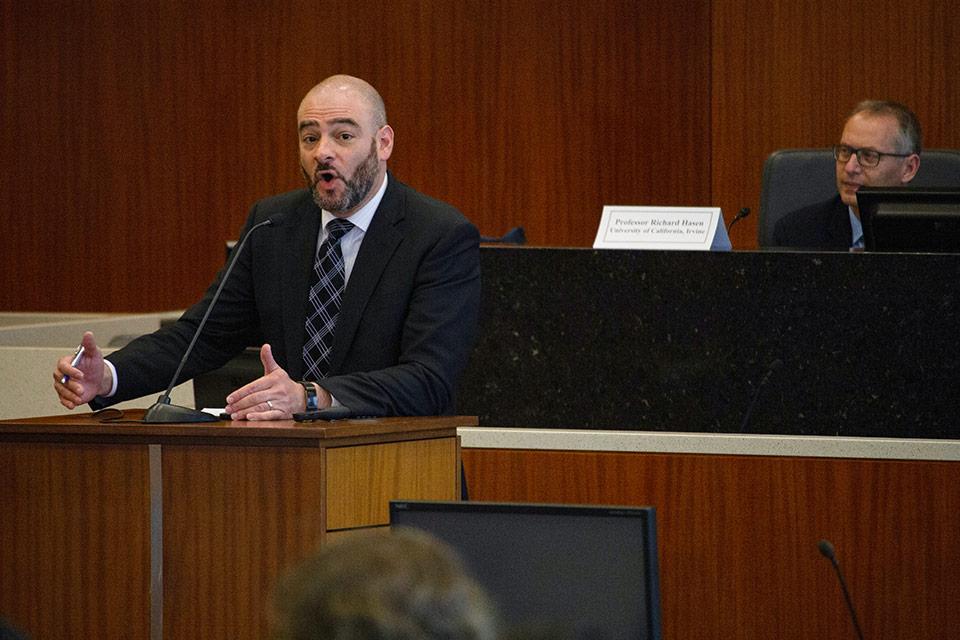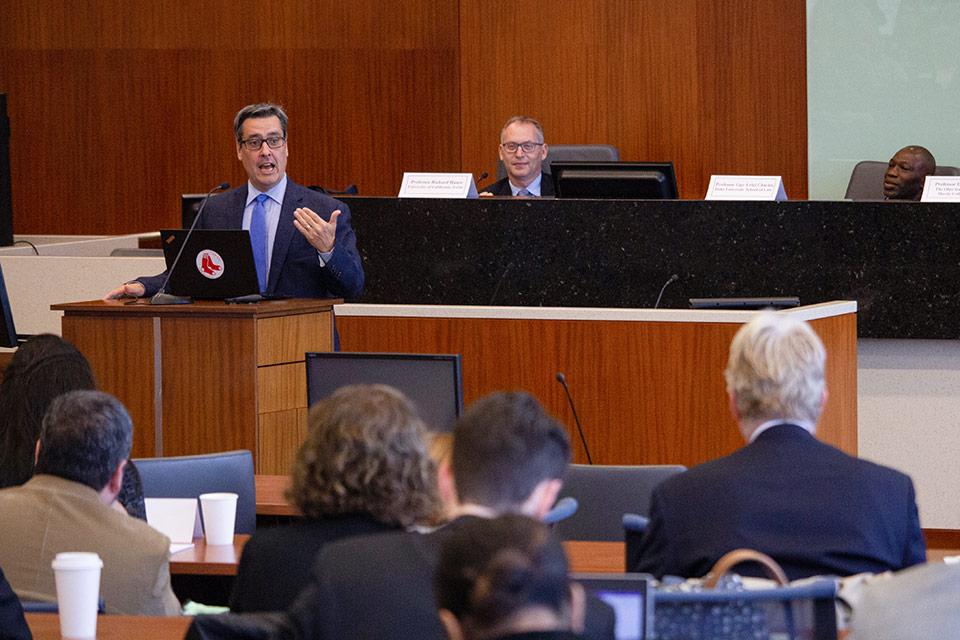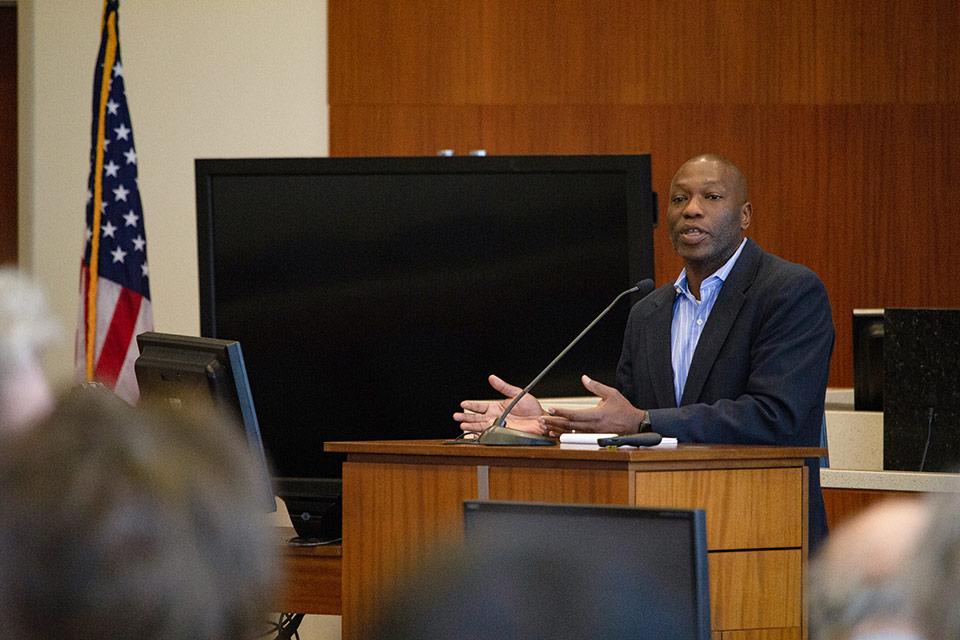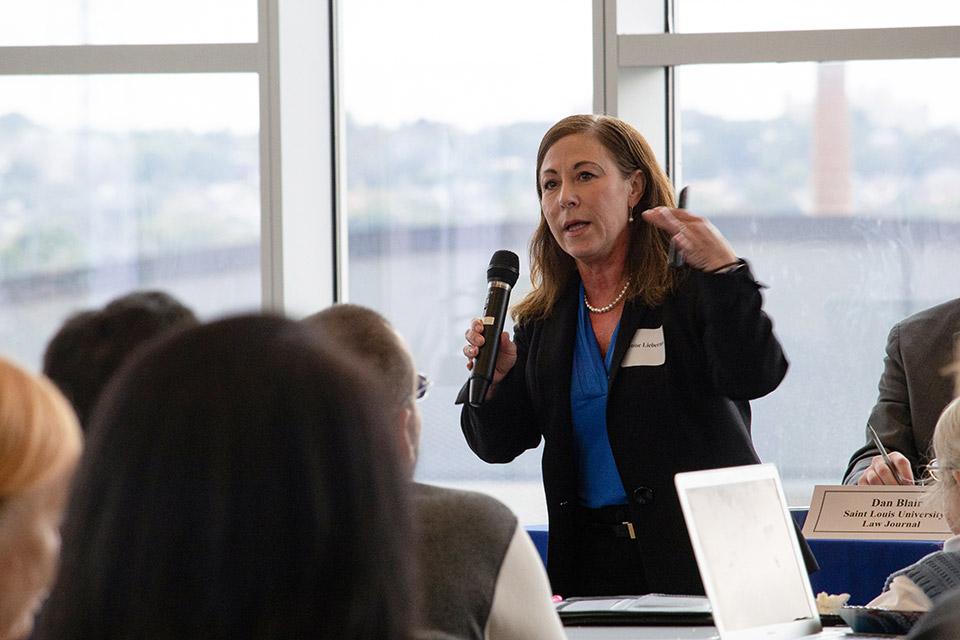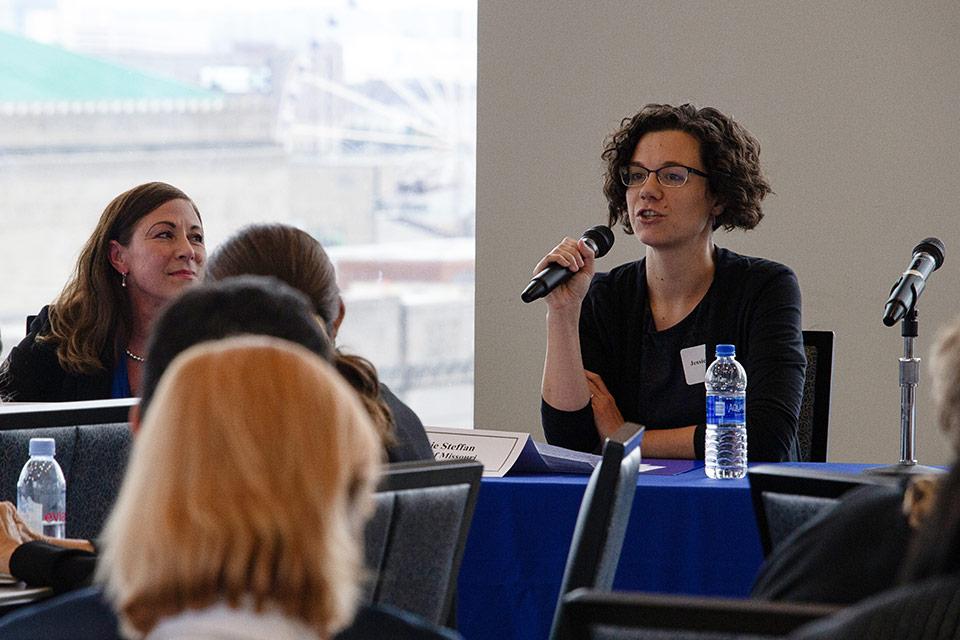Scholars from Across Country Discuss 'American Election Law in a Post-Truth World'
This year's Childress Memorial Lecture, held on Oct. 11, 2019, was hosted by the Saint Louis University Law Journal and organized by Prof. Chad Flanders and 3L Dan Blair.
Richard L. Hasen, Chancellor's Professor of Law and Political Science at the University of California, Irvine, was the keynote speaker.
In his address, Hasen discussed the idea of a "post-truth world," one in which there is fundamental disagreement among members of the public regarding basic facts about the state of the world.
"It's a world where emotion is more important than evidence, where views commonly divide along partisan, ideological lines," he said. "Social media amplifies this partisanship, raises emotions and hardens positions."
One particular phenomenon Hasen explored was that of "deepfakes" — manipulated videos or other digital representation that yield seemingly realistic images and sounds.
"The primary danger and the one people think about first is that voters are going to accept the misinformation and make bad choices about how they should vote. ... But I don’t think that is the primary danger of deepfakes. We’re going to start mistrusting all information. We’re going to be in a position where we’re no longer going to believe what is in front of our own eyes."
Hasen discussed possible solutions to this dilemma that could be compatible with the First Amendment, such as passing limited laws to ban false election speech (such as false information about where and how to vote); implementing a labeling requirement to disclose whenever a video has been altered in any way; and expanding campaign finance disclosure laws when it comes to large amounts of money.
Justices are not only producers of opinions; they're consumers of information."
Richard L. Hasen, Chancellor's Professor of Law and Political Science at the University of California, Irvine
He concluded his address by asking how we can ensure that political losers accept election results as legitimate in this post-truth world, and by pointing out that Supreme Court justices are just as susceptible as anyone else to being manipulated by false information.
"Justices are not only producers of opinions; they're consumers of information. The justices are not unique in this regard — they’re like all of us. But that’s the point: they’re like all of us. We’ve elevated our justices into this position where I can’t imagine how large their egos are, and I worry that we depend on a court to decide these very difficult political issues when the justices themselves are facing this post-truth world."
Following his address, Hasen was joined by panelists Justin Levitt of Loyola Marymount University Law School, Los Angeles, Daniel Tokaji of The Ohio State University Moritz College of Law, and Guy-Uriel Charles of Duke Law, who offered critiques of his address.
A second panel explored "The Emerging Election Law Landscape," which touched on redistricting, gerrymandering, the disproportionate influence of wealthy individuals and institutions, and electoral legitimacy, featuring Derek Muller of Pepperdine University School of Law, Yasmin Dawood of the University of Toronto, and Chad Flanders of SLU LAW.
The event's last panel provided more local insight, titled "Election Law on the Ground: Challenges in Missouri," featuring Denise Lieberman of the Advancement Project, Jessie Steffan ('12) of the ACLU of Missouri, and Kenneth Warren of Saint Louis University.
The proceedings of the lecture will be published in a forthcoming issue of the Saint Louis University Law Journal.
